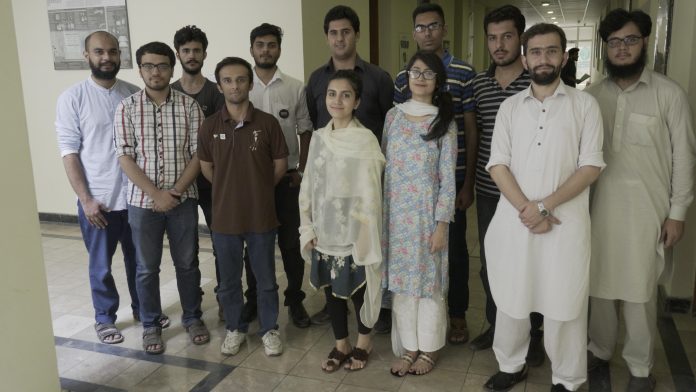LAHORE
iGEM Peshawar has become Pakistan’s only team to participate in the ‘International Genetically Engineered Machines Competition’ which is held annually in Boston, USA.
This year, almost 337 teams from 48 different countries are participating in this competition, which includes teams from Harvard, Yale, MIT, Oxford, Cambridge, and the rest. These teams comprise of both prestigious and little-known science and tech institutions of the world.
In this competition, the teams warm up and develop projects related to Synthetic Biology – having real world applications. Apart from the technical part of the project, the teams also reign to perform public outreach – this particular domain of iGEM, is called ‘Human Practices’.
Through this, the teams have to reach out to the general community – the masses, government and industry – to ensure that they are all engaged in a scientific dialogue and that their expertise or opinions are taken into consideration during project designing and product development.
Synthetic Biology is a novel field to emerge in Biology, the purpose of which is to apply engineering principles within Biological Systems to make them simpler and increase their efficiency.

Last year, was the first time that a Pakistani team was selected for this competition, and that team synthetically engineered a bacteria to detect the air pollutants such as CO and oxides of Nitrogen.
They brought honour to Pakistan in the realm of science and technology by winning the Bronze Medal.
In Pakistan, iGEM Peshawar is being supported by a joint collaboration between Department of Science and Technology, govt of KPK and Institute of Integrative Biosciences, CECOS University.
This year, iGEM Peshawar team consists of 12 members who have been selected from all over Pakistan. These students belong to 9 different institutions of Pakistan; IIB, IIUI, NUST, GIKI, FC College, UET, Comsats, KUST and the University of Peshawar.
10 of these students belong to different subfields of Biology while 2 are engineers, civil and electrical engineer, respectively.
These students are currently working at Institute of Integrative Bioscience, where they are developing their project for iGEM 2017.
This year they are working on detecting the presence of heavy metals in water. Heavy metal contamination is an emerging environmental concern here in Pakistan. This contamination is a threat to aquatic life, wildlife, and humans who consume it.
Firstly, the team will engineer a biological system in bacteria which will enable the bacteria to emit specific colours when it will come in contact with relevant heavy metals. They will then insert this system inside fishes and develop a bio-reporter fish which will glow when it will come in contact with heavy metals.
Social uplift:
Whilst performing the project, the team is also involved in Public outreach. These days they are travelling throughout Khyber Pakhtunkhwa and visiting different schools as a part of KP Summer Camp, they will also visit other provinces, where they will engage students in interactive sessions on Biology and Synthetic Biology and shall teach them laboratory skills.
The purpose of these sessions is to spread scientific awareness and ensure that young students receive knowledge about the modern advancements.
Moreover, they shall also engage with the government institutes and industry, to take them on board during the course of this project.
While talking to Pakistan Today, one of the truly devoted, hardworking team member, Hassnain Qasim told:
“We are living in an age where we can’t risk lagging behind in technology, this competition provides us students an opportunity to bring and apply the same cutting edge technology, Synthetic Biology, in Pakistan.”




